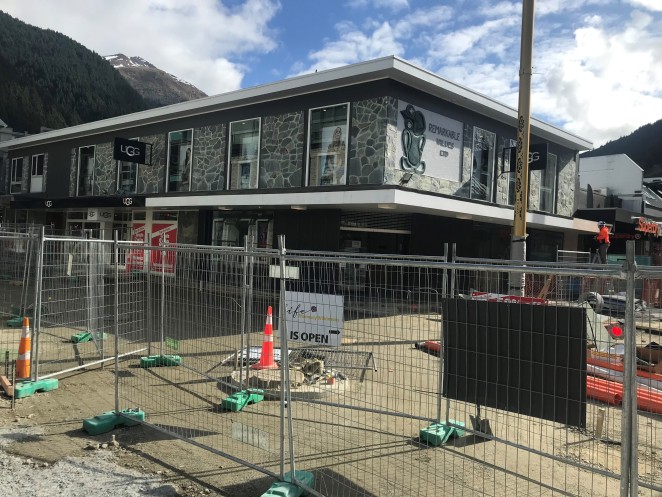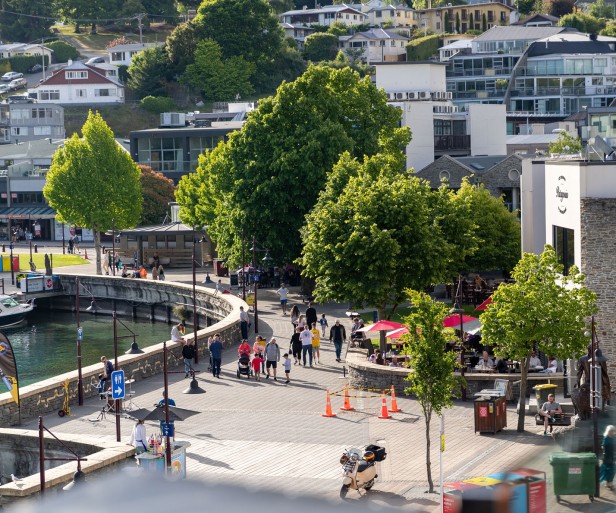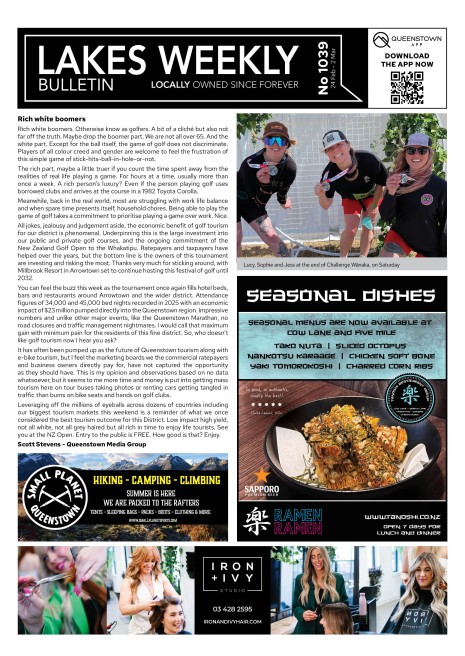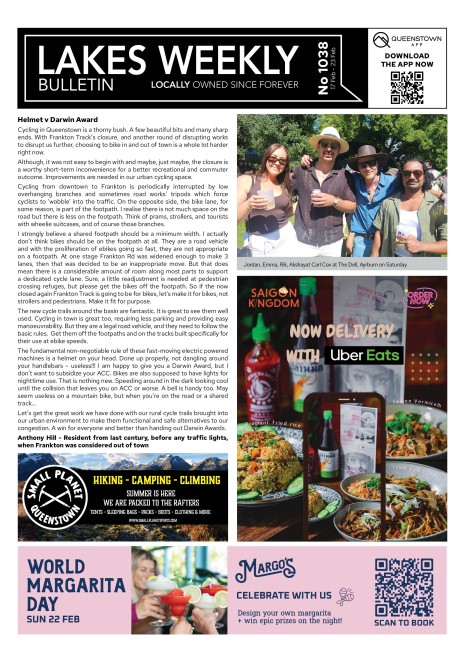Demand underpins Queenstown’s property sectors
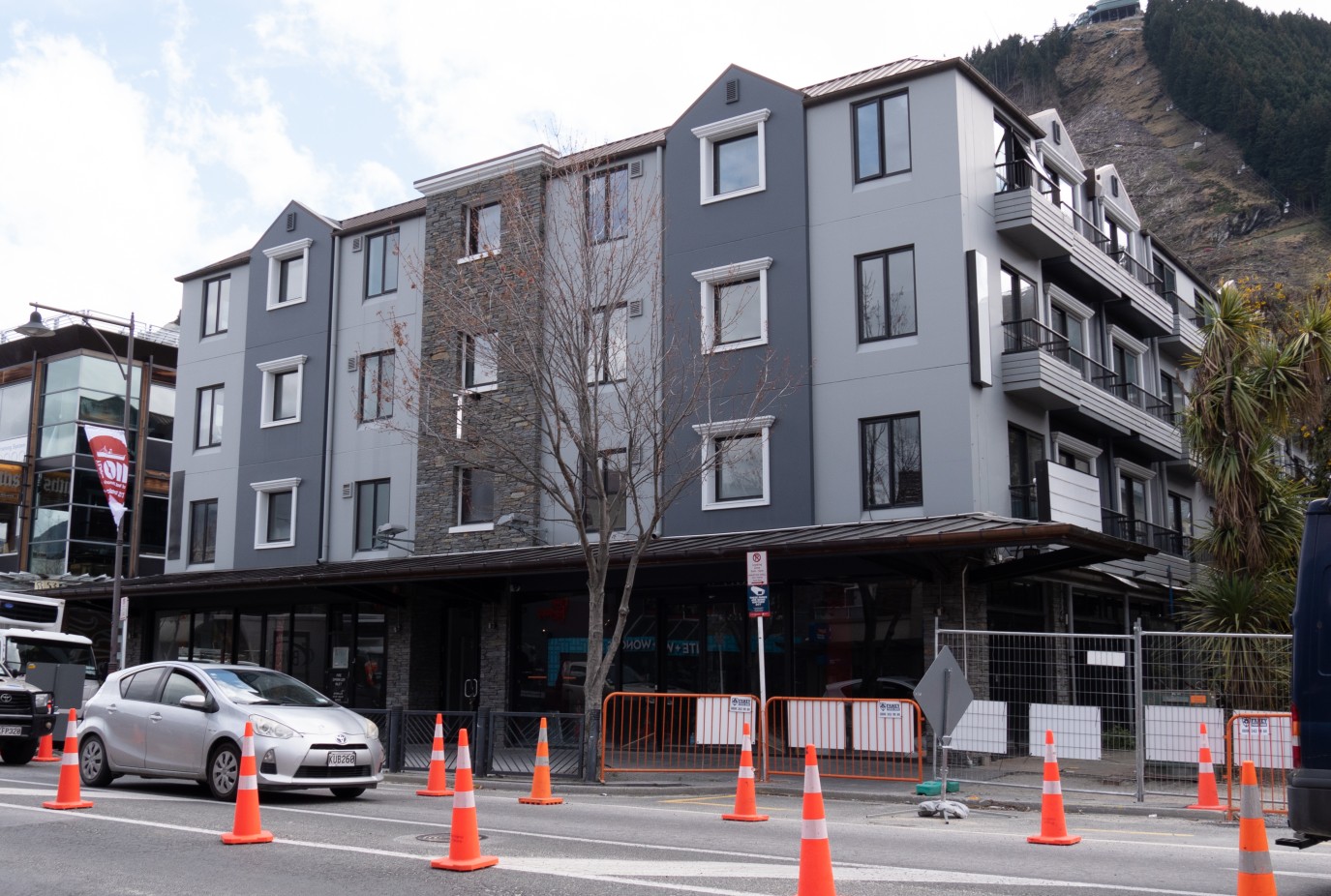
While the housing market is slowing due to inflation and interest rates, money continues to flow through Queenstown Lakes’ commercial and industrial property sector.
And the annual 2022-23 Colliers Otago Market Review and Outlook shows it’s not just downtown that’s shaking off the pandemic blues.
“We’re not really seeing that caution in the market that’s affecting the rest of the country,” says Colliers Queenstown Valuation Director Heather Beard, speaking at the launch late last month.
Beard says in terms of retail and office space, prime CBD, Queenstown Central and Five Mile are near fully leased, while Remarkables Park is diversifying with a mix of retail, education and cultural tenants, including the new multi-purpose, community arts and cultural space Te Atamira.
In Arrowtown, the commercial property market has been active throughout the winter, with new entrants to Buckingham Street and several existing tenants moving the bigger or better premises.
That’s seen a record retail deal of $1,000-per-sqm for a small corner store.
There’s a downside, however, as local businesses are becoming priced out by national and international retailers and real estate offices, presenting a risk to the village’s retail mix and its character.
In Queenstown CBD, prime retail is attracting a net face rent of $1750 - $2000 ($sqm + GST + OPEX), while secondary retail is $400-$1000 and office space $325-$450.
For prime retail, supply is low, demand returning and the yield 3-3.75%.
Among the recent newly tenanted premises is 8 Ballarat St, which was snapped up by UK outdoor brand Mountain Warehouse after becoming available for the first time in 28 years.
The retailer is paying $400k per annum (+OPEX +GST) for the 472sqm premises.
For secondary retail, supply is moderate, demand still low, and yield 3.75-4.5%. And office space is scarce, with only smaller sub-200sqm spaces available, and demand moderate.
On the whole, rents are reaching pre-Covid levels, with rent abatements and incentives now dropping off.
The shortage of available premises, boosted by companies competing to gain a foothold in Queenstown to capitalise on the returning tourist dollar, is once again a strong driving force for the property sales market.
There have been some interesting recent sales in the CBD, including 61 Beach Street, the former Flame building, which sold for $5m in October 2017, and then $8.5m in June, showing a 12% annualised growth.
The 1980s commercial building is across 228sqm with three levels and a mezzanine level, all looking out on to Earnslaw Park and the refurbished Beach St. Its net contract yield is 3.52%.
Tiki Corner, 27-31 Rees St, meanwhile, sold for $32.5m to a partial owner-occupier. The premium dual corner, two level, multi-tenanted building has a net contract yield of 3.23%. Just down the street, 17 Rees St sold for more than $6.5m, with a yield of 3.68%.
The overall popularity despite yields below 4%, compared with a risk-free 10-year bond rate of 4%, “speaks to the long-term growth prospects of Queenstown and the confidence in that market,” Beard says.
In Frankton, sales include the Kawarau Park Development, between Shotover Country and Lake Hayes Estate, which fetched a whopping $95m back in April.
The two-hectare mixed use development is anchored by the new Southern Cross Hospital, and also includes the Pacific Radiology, hospitality, medical centre, pharmacy and childcare businesses, with an overall yield of 4.25%.
Frankton, as a whole, continues its rise as a popular shopping spot for locals, with parking a key attraction. Hawthorne Drive has several new developments, including a purpose-built showroom for McKenzie & Willis and further two storey buildings in the same block.
Retail attracts $450-$750 net face rent, with low supply, low-to-moderate demand, and a yield of 4-4.75%. Large retail / showroom is $325-$450, with low supply and moderate demand, and a yield of 4.5-5.5%, while office space is $325-$425, with low supply and increasing demand, and a yield of 4.5-5.5%.
There are still some retail vacancies in the wider Remarkables Park area, mostly around the new hotel precinct, which has yet to become established and has been surrounded by construction activity.
Holiday Inn and Quest Remarkables Park both opened during the pandemic, along with several others, such as Sudima in Five Mile and the Holiday Inn and Ramada on Stanley St downtown.
Beard says there continues to be strong demand in that sector with institutional investors, such as REIT’s (real estate investment trust), private investors and private equity groups, all looking to invest in tourism properties.
Two backpackers, the YHA and Base Backpackers on Shotover St, both closed due to Covid-19. The 370-bed Base has been bought by Fable Hotels and will be refurbished into a high-end hotel.
“So, Queenstown could benefit from more high-end tourists,” Beard said. On the flip side, we might see an increase in freedom camping over the summer.”
Industrial property is also in high demand, mirroring the national picture, with a real shortage of industrial land in Queenstown.
“The basin has near to no vacancy and a trend of increasing rentals. There was a little bit of a dip in the market in 2021. But that’s fully recovered now and rentals have returned with a trend of increasing on the annual renewal.”
Sales include 19 Margaret Place, Frankton, which sold for $2.9m in July. It has three separate tenants across 967sqm, with a net contract yield of 4.4%.
There were also strong sale prices at M-Space in Frankton, the 15-unit complex near Pak’nSave. One unit, unit 12, almost doubled in price from July 2019 to March 2022, rising from $475K to $935k.
There will be some industrial premises as part of the Coneburn subdivision, near the base of the Remarkables, while there’s also a plan change application for 50 hectares at Victoria Flats, Gibbston, which would include a large storage complex.
There’s some risk for the sector’s future performance work dries up for its building and construction industry tenants.
But Colliers’ review also lists 15 residential developments and subdivisions, and a dozen infrastructure projects, in the pipeline over the next decade, so in the long term, all sectors of Queenstown Lakes’ property market look strong.
